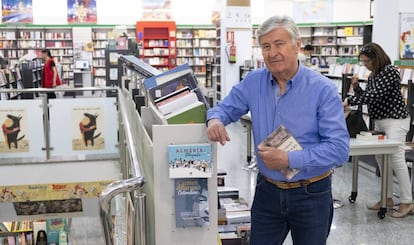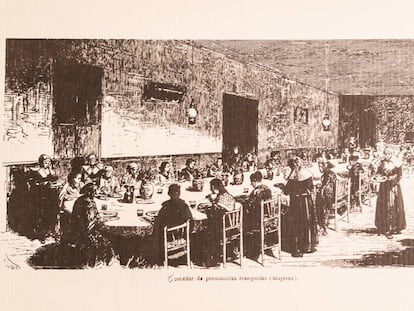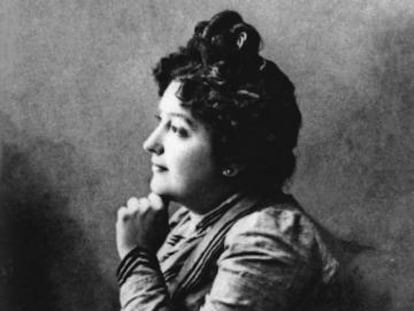How Twitter helped a Spanish octogenarian sell out his Civil War memoirs
Amateur writer Emilio Ortega had failed to sell a single copy of his book, until he met a young man who felt his story of hardship and survival deserved an audience


¡°My mother was a fighter, a truly courageous woman. I think that sensitive people who read my story will be moved,¡± says Emilio Ortega in a telephone conversation from his home in Almer¨ªa.
At the age of 81, Ortega¡¯s life has been turned around by sudden and unexpected literary success ¨C with the help of social media.
In January, this amateur writer self-published an autobiography called El mundo visto a los ochenta (or, The world viewed at 80), but it failed to sell a single copy at any of the city bookstores where it went on sale.
I don¡¯t think my mother had a single moment of happiness
Emilio Ortega
Feeling downcast, he attended the Almer¨ªa Book Fair in early May to see if he might find some buyers there. He did not. But he ended up giving a free copy of his book to a young man who expressed an interest in it. ¡°I never thought that our conversation would take things this far,¡± he laughs.
Ortega, who has French citizenship and was born in Oran (Algeria) to Spanish parents, is living testimony to the hardships of the Spanish postwar era.
¡°My father was a lieutenant in the Republican Army, and he died in the Battle of the Ebro. Pepa, my mother, was left without a widow¡¯s pension and was forced to beg to raise her children.¡±
The young man was so taken by Ortega¡¯s story that he decided to share it on Twitter. The tweets quickly spread, and another user decided to buy a copy of the book. He was the first customer.
¡°Pedro and I talked, and he told me he would do whatever he could to make sure that more people heard about my memoirs,¡± says Ortega.
In the ensuing wave of solidarity, the book was sold out within a week across Almer¨ªa. ¡°We¡¯ve ordered another print run of a thousand,¡± said a spokesperson at the publishing house, C¨ªrculo Rojo.
I don¡¯t want to get rich off this, I am not a great writer
Emilio Ortega
In the first part of the book, Ortega recounts a childhood spent staving off starvation with his mother and cousin in Madrid, where they were forced to take up residence during the Civil War (1936-1939) due to his father¡¯s military obligations.
¡°He was a lieutenant in the Republican Army, but he died in the Battle of the Ebro. Pepa, my mother, was left without a widow¡¯s pension and was forced to beg to raise her children. We would resell the loaves of bread from the ration cards in order to make a few cents and buy peanuts or carob beans,¡± he recalls. His mother made an additional 12 pesetas a day as a house cleaner.
They lived in fear, and finally left the city. ¡°Plainclothes police officers arrested my mother several times because begging was forbidden,¡± says Ortega.
They rode several trains as stowaways until they reached Zaragoza, where their belongings were stolen. ¡°That¡¯s despite the fact that my mother was carrying a picture of Our Lady of Carmel for protection,¡± jokes Ortega.
Nine years after the war ended, Franco opened up the borders and the family was able to return to Algeria with help from a relative. ¡°I dropped out of school because I began an apprenticeship with a blacksmith,¡± he explains. Years went by, and Algeria became an independent country. Overnight, ¡°there were a lot of dead people, especially white ones.¡±
Plainclothes police officers arrested my mother several times because begging was forbidden
Emilio Ortega
Ortega traveled to Paris, where he met his wife, who was originally from Almer¨ªa in southern Spain. They had a child.
¡°Fortunately, my mother was always by my side, until she left us,¡± he says.
Nobody was expecting it. ¡°She was admitted into hospital for an ulcer on her leg, but died from a bowel obstruction. I didn¡¯t make it in time. She was a very unhappy woman; both her husbands died, and I don¡¯t think she had a single moment of happiness.¡±
Ortega is grateful to the two young men who gave a voice to this story, which he had to type up four times on his computer because ¡°it got deleted.¡±
Ortega feels that Spain is his home, and he wants to die in Almer¨ªa. Before hanging up, he makes one final observation about his sudden success: ¡°I don¡¯t want to get rich off this, I am not a great writer, but I hope it will help others share their own experiences.¡±
English version by Susana Urra.
Tu suscripci¨®n se est¨¢ usando en otro dispositivo
?Quieres a?adir otro usuario a tu suscripci¨®n?
Si contin¨²as leyendo en este dispositivo, no se podr¨¢ leer en el otro.
FlechaTu suscripci¨®n se est¨¢ usando en otro dispositivo y solo puedes acceder a EL PA?S desde un dispositivo a la vez.
Si quieres compartir tu cuenta, cambia tu suscripci¨®n a la modalidad Premium, as¨ª podr¨¢s a?adir otro usuario. Cada uno acceder¨¢ con su propia cuenta de email, lo que os permitir¨¢ personalizar vuestra experiencia en EL PA?S.
En el caso de no saber qui¨¦n est¨¢ usando tu cuenta, te recomendamos cambiar tu contrase?a aqu¨ª.
Si decides continuar compartiendo tu cuenta, este mensaje se mostrar¨¢ en tu dispositivo y en el de la otra persona que est¨¢ usando tu cuenta de forma indefinida, afectando a tu experiencia de lectura. Puedes consultar aqu¨ª los t¨¦rminos y condiciones de la suscripci¨®n digital.










































